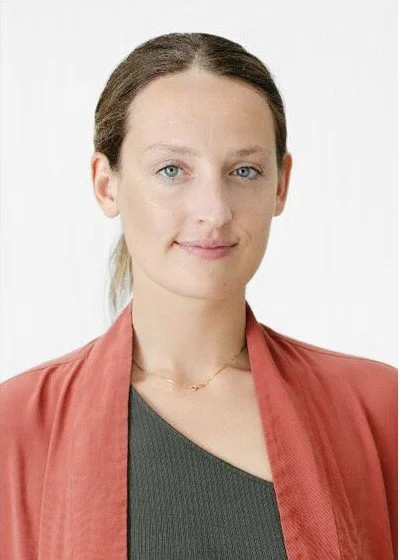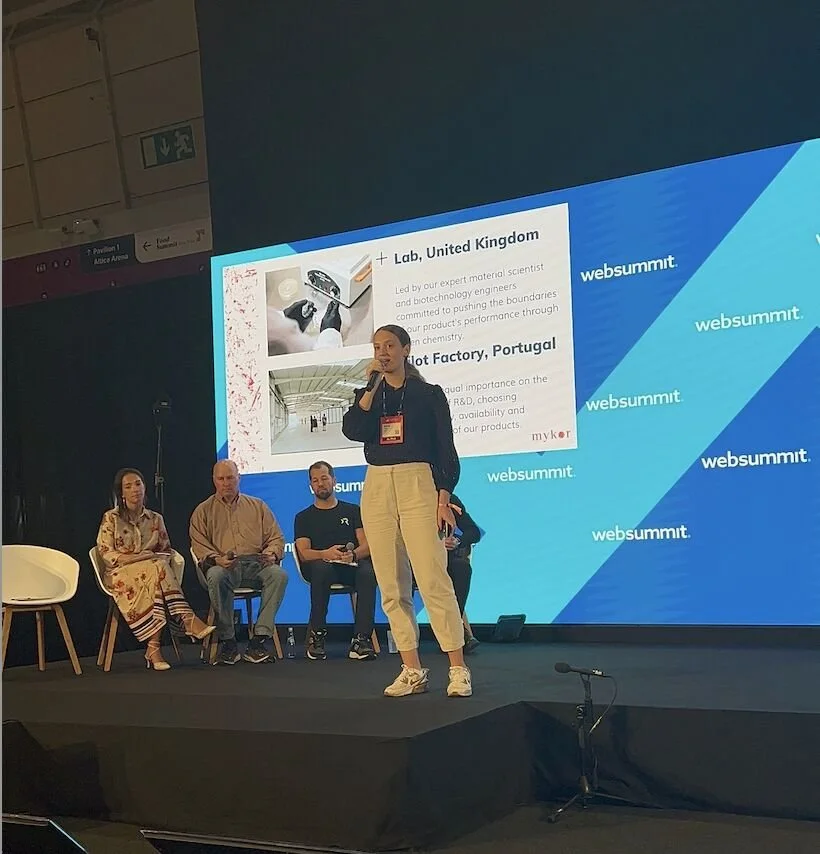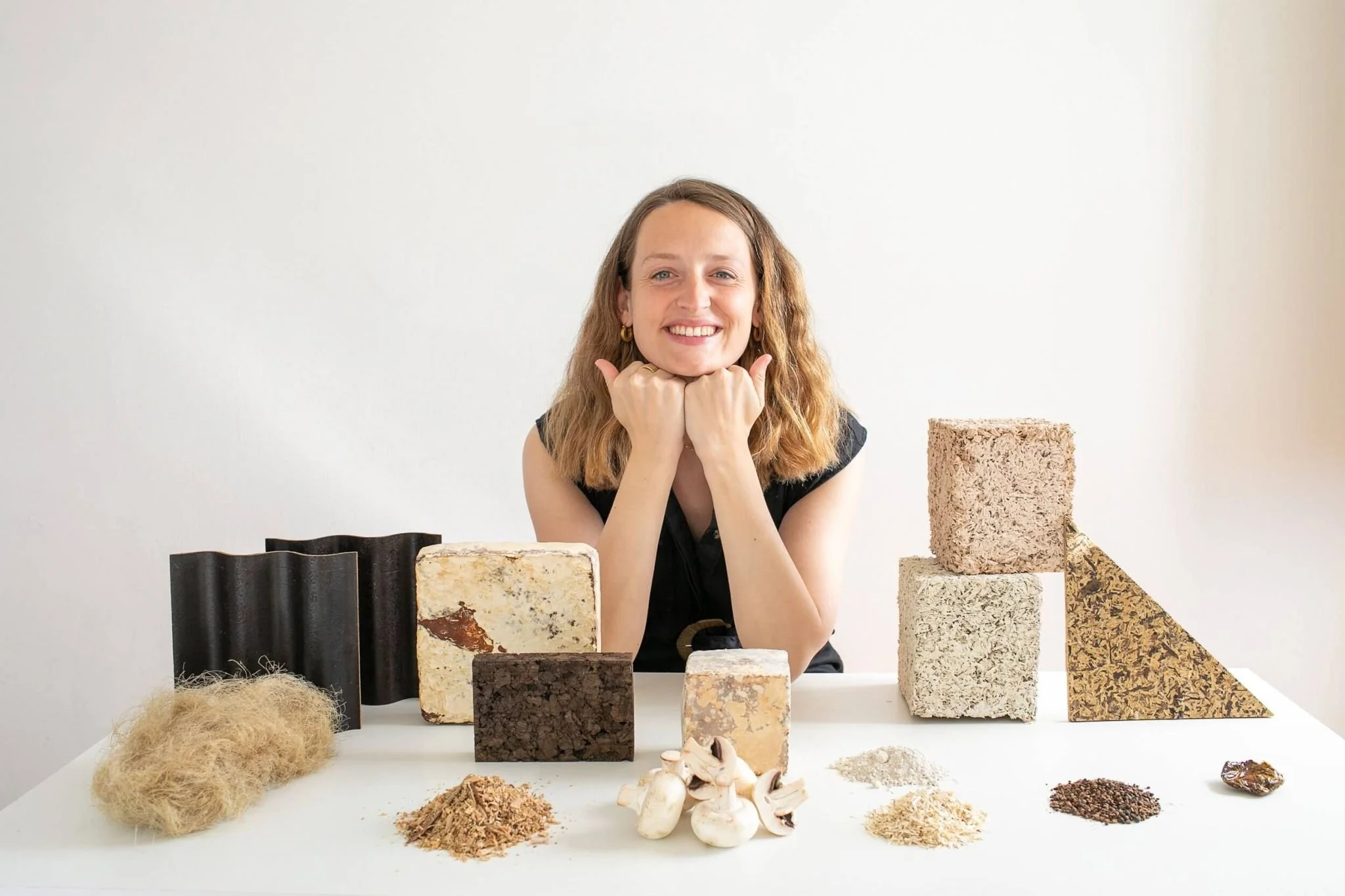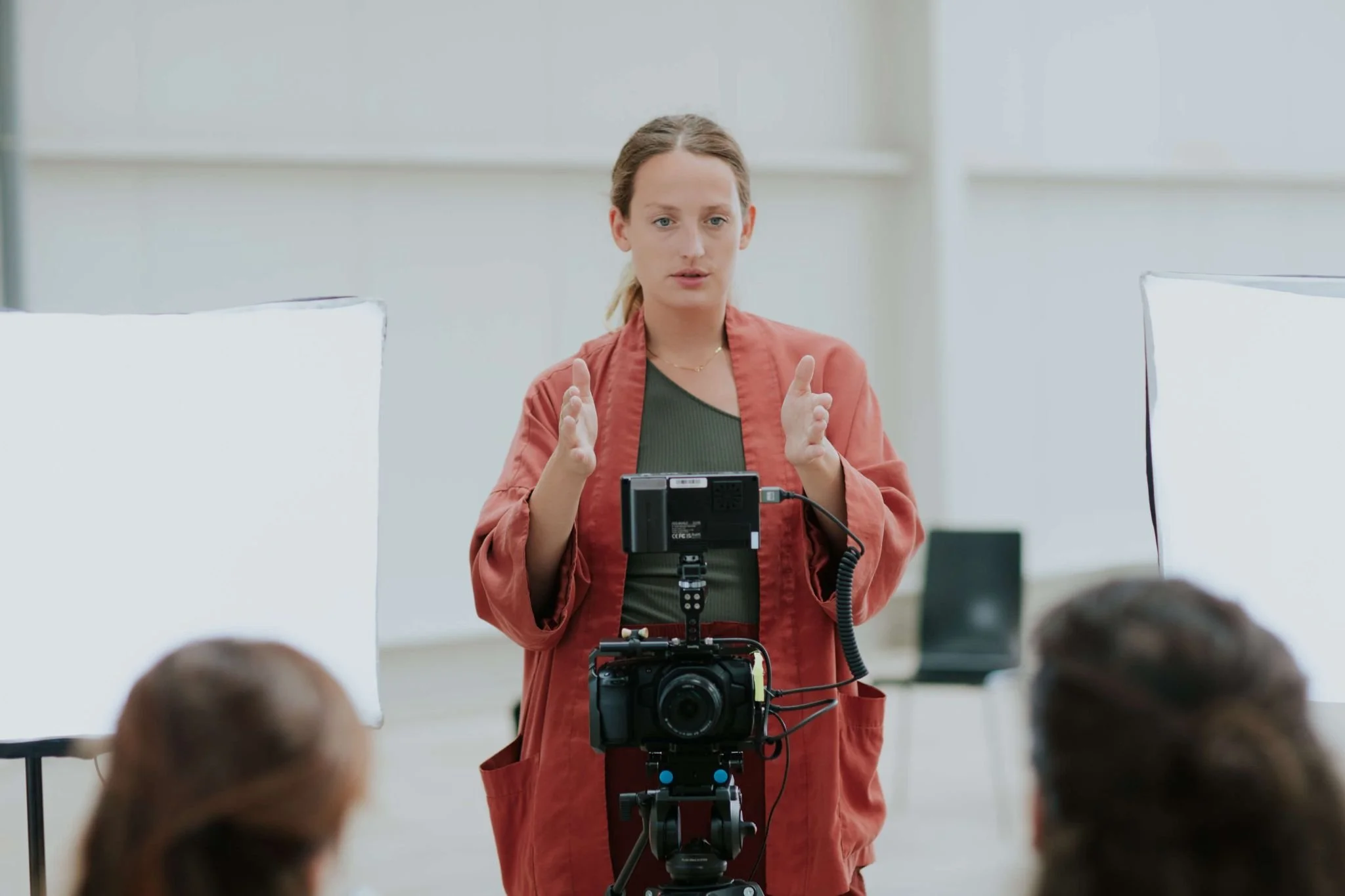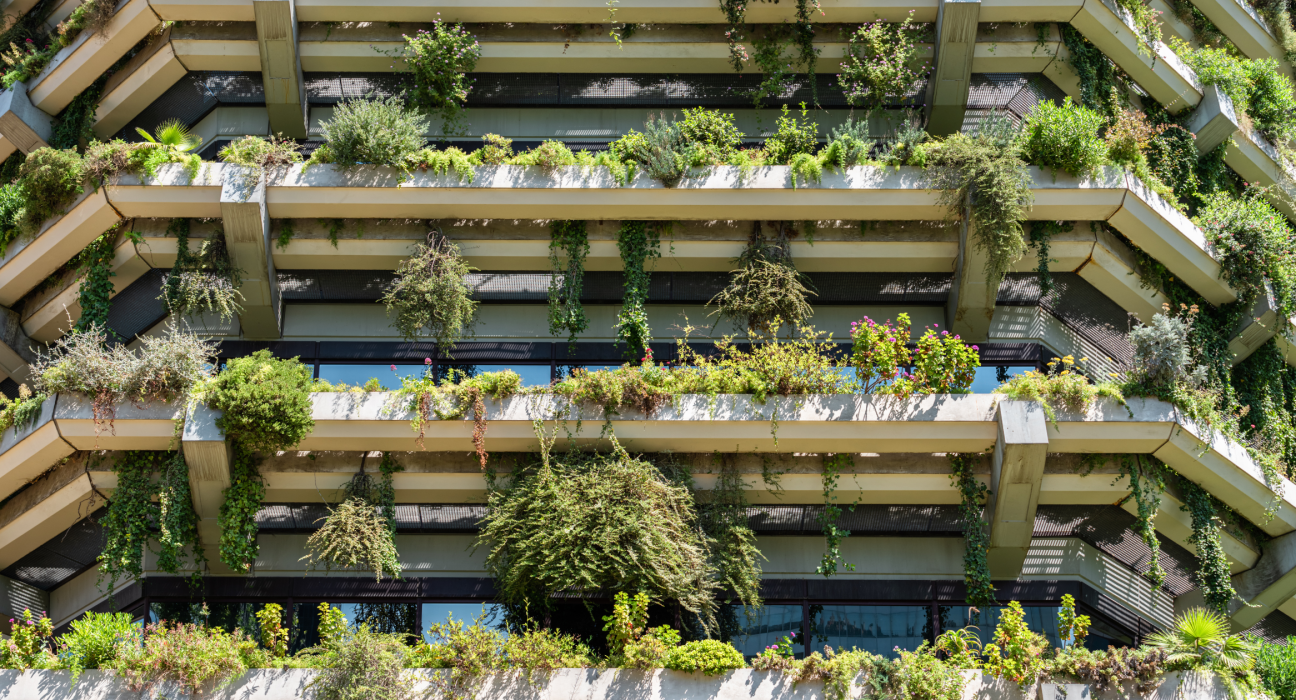
Olivia Page: Developing the next generation of sustainable construction materials
Olivia Page on decarbonizing the construction industry
This week, the TTI Interview Series covers our member Olivia Page. Olivia is the Co-Founder of Mykor Ltd, alongside Valentina Dipietro, she leads a biotechnology and advanced materials company dedicated to developing commercially viable and environmentally sustainable construction products crafted from waste streams and biotechnology. From London, UK, Olivia graduated in 2019 from Central Saint Martins, with a Masters in Architecture, where she gained the Spatial Practices award and Green Trail Maison/o LVMH winner. Since 2014. Olivia has specialised in bio-based sustainable construction materials, made from by-products of agriculture or industry.
Olivia, tell us a little about your work and how it intersects with the impact space.
Mykor develops and scales the next generation of building insulation that considers both human and planet health. Our first product, MykoFoam, is a 100% circular insulation panel made from industrial residues and mycelium, excelling in its thermal and acoustic properties, as well as fire resistance. On a mission to decarbonise the construction industry, our product is a sustainable alternative to conventional insulation with low embodied carbon. We create not only an environmental impact by reducing carbon emissions, but also a social impact by reducing energy poverty with our insulation. Therefore, reducing energy bitts and increasing Indoor air quality.
What is your own definition of impact?
Impact is a broad term that I believe should address challenges that the environment, society and economy face. A positive sustainable impact is a change that will reflect in these three pillars by taking a step towards addressable needs.
What do you believe is one of the most important issues that need to be solved over the next 10 years?
Linking social to environmental equality, particularly in relation to climate refugees.
What do you think are some of the biggest challenges in the impact space, standing in the way of providing solutions faster?
The market for sustainable matorials in the construction industry is quite now and with that comos many doubts on why and how should people switch to an unconventional material if it is not the common go-to product. Our current business challenge is to scale production from pilot scale to full commercial production within our factory premises, which currently operates at only one-fourth of its potential capacity. Our goal is to optimise our manufacturing infrastructure, so that our Mycelium products can be produced in a few days not three weeks. We have designed a production bioprocess that requires a third of the energy and raw materials cost vs current mycelium production processes (which our competitors in the mycelium space also struggle with) as well as producing products that are not limited in thickness or standard dimensions (normally there is an 80-100mm maximum thickness limited by the lack of oxygen in the mycelial growth).
Tell us more about the long-term vision you have for your work and how you measure & quantify your impact.
We aim to shift attitudes towards construction. Where the norm is to build with products that are healthy for humans as well as the planet. We measure this through air quality, carbon emission removed, carbon emissions sequestered and energy savings per year.
What are some of the misconceptions you've noticed regarding what impact is all about?
From my experience, the most common misconception is that impact and business or entrepreneurship often do not go hand in hand, particularly in male-led industries. Impact is more frequently associated with charity instead. As the founder of a female-led business, I believe this industry lacks female presence, and with more women in it, it would thrive in innovation.

